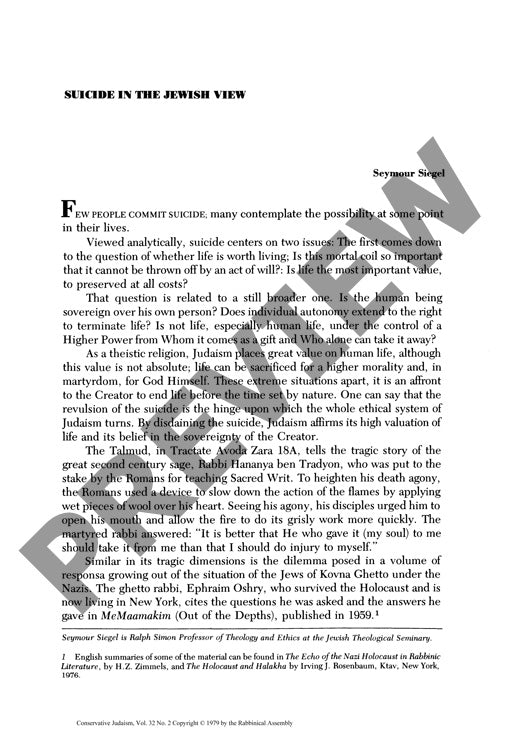Suicide in the Jewish View
Couldn't load pickup availability
Judaism's complex relationship with suicide reflects a delicate balance between divine law and human compassion. Through analysis of classical rabbinic sources, Talmudic texts, and halakhic literature, a nuanced religious framework emerges - one that fundamentally condemns suicide as an affront to divine sovereignty while extending understanding to those in extreme distress. The research examines primary sources including the Talmud, Midrash, and responsa literature, with particular focus on cases from the Holocaust period. While Judaism views life as a divine gift that only the Creator may reclaim, rabbinic authorities distinguish between willful suicide (me'abed et atsmo l'da'at) and acts of self-destruction committed under duress, mental illness, or extreme circumstances. Biblical cases like King Saul's death are interpreted as martyrdom to prevent forced apostasy rather than normative suicide. Over time, rabbinic authorities developed increasingly compassionate interpretations of the legal requirements for determining willful suicide, making the criteria so stringent that virtually all suicide victims receive full burial honors. This evolution in Jewish legal thought demonstrates how the tradition maintains its fundamental valuation of life while acknowledging human suffering, ultimately upholding both divine sovereignty and human dignity within its ethical framework.

More Information
-
Physical Description
-
Publication Information
Published 1979
ISBN
-
Publication Credits
Seymour Siegel

